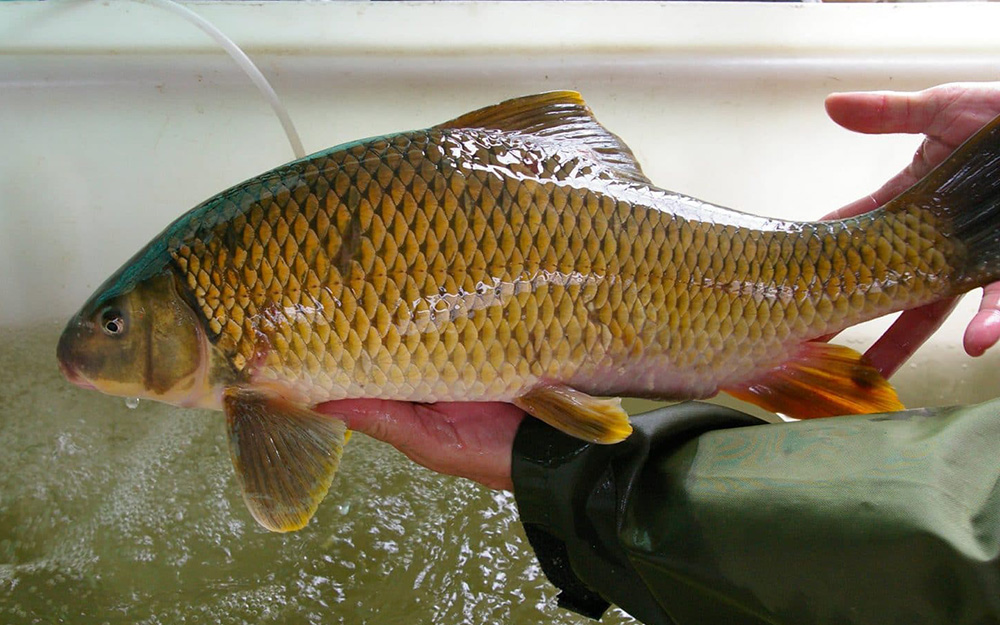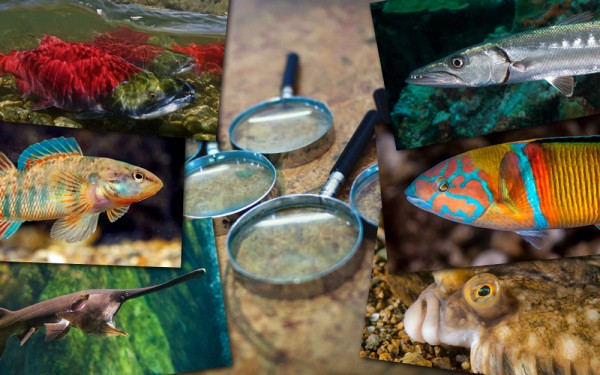Copper redhorse
(Moxostoma hubbsi)

Classification
General data
The copper redhorse (Moxostoma hubbsi) is a North American species of freshwater fish in the family Catostomidae. It is found only in Canada.
Its extremely small range, which is restricted to a few rivers in the lowlands of southwestern Quebec, has contracted significantly in the past few decades. Confirmed populations currently exist in the St. Lawrence and Richelieu rivers. Rivière des Mille Îles likely supports a remnant population. The copper redhorse is one of seven species of the genus Moxostoma (family Catostomidae) occurring in Canada. Its discovery has been attributed to Vianney Legendre in 1942, but it appears to have been first described by Pierre Fortin in 1866 as an already known species of the genus Moxostoma.
Habitat
The copper redhorse occurs primarily in medium-sized rivers where water temperatures exceed 20 °C in summer. Spawning occurs in riffle areas where the current is moderate to slow and the depth ranges between 0.75 and 2 m, over fine to coarse gravel and cobble substrate. Like its congeners, young-of-the-year copper redhorse spend their first growing season in shallow shoreline areas no more than 1.5 m deep, characterized by gentle slopes, vegetation, a very slow current and fine substrate (mix of clay-silt and sand).
To date, there are only two known spawning grounds (Chambly archipelago and the channel downstream from the Saint-Ours dam) and a nursery area (Saint-Marc-sur-Richelieu) has been identified in the Richelieu River. Very recently, the presence of copper redhorse has again been reported in the Lavaltrie-Contrecoeur sector of the St. Lawrence River. The reasons for its presence in this stretch of the river in the spring and early summer (pre-spawning congregation, spawning or migration route) and fall (wintering grounds) could not be determined. High quality copper redhorse habitat is in decline. Its apparent extirpation from the Yamaska and Noire rivers is closely linked to environmental degradation.










